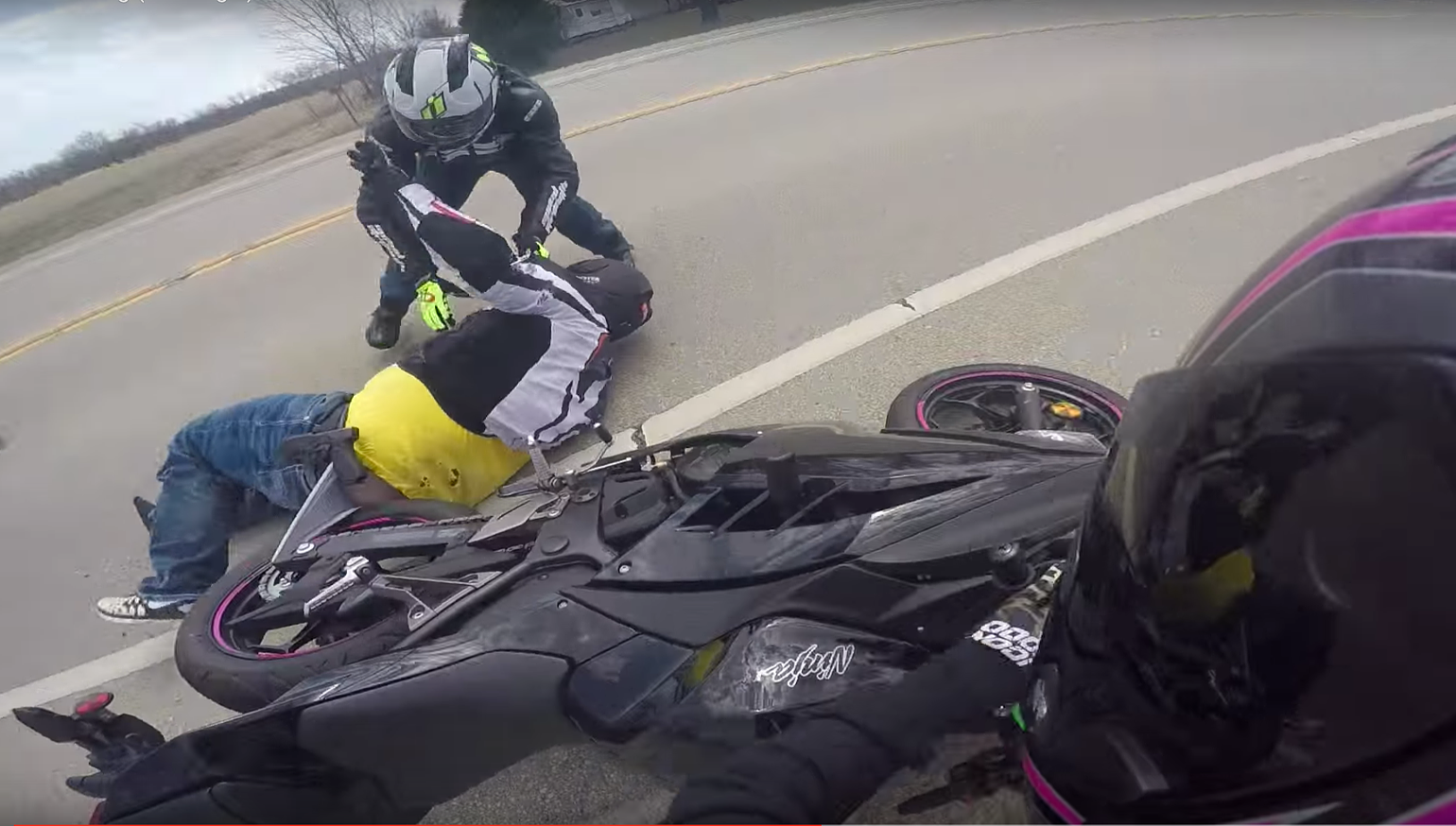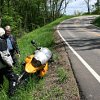I met someone the other day with a broken wrist from a motorcycle crash: “I got hit by a car,” he said.
As we riders usually do, I immediately thought of every obvious situation where a driver would be at fault. A left turn across lanes, I figured, or maybe some idiot in a parking lot looking at their phone. But as the story unfolded I started to question the narrative. A sharp slowdown in traffic had caused the rider to swerve and end up in oncoming traffic. In the end, what he said was true, technically. Still, I’m not sure the person in the oncoming lane who suddenly faced a bike coming at them is the bad guy.
There are plenty of details about this incident that I don’t know, and at this point all I can do is hope that this fellow is thoughtful enough to have learned a lesson from his crash. Then again, maybe what he needs is someone who will ask him, “Are you sure that wasn’t your fault?”
Let me say, sooner rather than later: I am not above mistakes. I have had to ask myself that same question in the past. I rear-ended an SUV on the highway a number of years ago, and because I hit my head hard enough I don’t actually remember what happened. It would have been easy to tell people that there was nothing I could do — that the Range Rover jumped across lanes and left me nowhere to go — but the truth is I don’t know that for sure.
A few years later, a colleague of mine jammed on his brakes to take a dirt turnoff and in swerving to avoid him I ended up in a ditch. Sure, he should have signaled, or just ridden past and turned around. But if you’re like me you’ll be reading my two anecdotes and thinking, “Uhh, sounds like Zack is a tailgater.” Yeah, I’m inclined to agree, even though it’s not fun to have those conversations, either with other people or myself.
We human beings don’t like to admit being wrong. There’s plenty of research to show that, and probably evidence in your own life. “Those crumbs on the floor? No, I’m not sure where those came from, and yes I know food isn’t allowed here.” Just like that, you get away with eating your sandwich on the train, avoid embarrassment, and tell yourself it was the right call because now your blood sugar has evened out. Lying to the conductor likely only produces a small amount of cognitive dissonance — the psychological stress incurred when you act on one of multiple contradictory beliefs in your head. Telling yourself, along with your friends, that the person on the other side of your motorcycle accident was at fault is more dangerous than other small lies, however.
The main detriment is your own knowledge and experience. Blaming someone else is a way to escape responsibility publicly, but the real damage is steering your brain away from learning a lesson privately. An admission of some fault will cue a dialogue in your motorcycling psyche to find a way to avoid it in the future; or at least it should.

This is one reason MotoGP racers love data. They don’t have to feel bad about crashing. All they want to know is how to avoid it next time while going the same speed or faster. In street riding, GP-level data won’t usually help us but the same passion for wanting to know what went wrong can still drive us. Striving to be diligent about awareness and safety on your commute isn’t as glorious as pole position. Then again, learning from mistakes can be just as crucial, if not more so.
We create our own narratives for a couple of reasons. Foremost, it’s the easy way out in the moment, and it feels right because we save some embarrassment. We are proud, as humans; top of the food chain and we like our dignity. For motorcyclists, there is an added pressure of the many narratives that already exist around motorcycles being dangerous. We are prone to putting a positive spin on any incident with a motorbike, in part, because we don’t want another ugly story in the ecosystem of traffic folklore. I think it can be born from a good place — we want people to see motorcycles the way we do, as an experience that enhances our lives. Still, like grandma always said: A lie is a lie, and it usually hurts more than one person.
Don’t worry, there’s some good news here. First of all, you don’t have to crash to recognize a mistake. Just the other day a Mustang convertible pushed the end of a yellow light too far and almost hit me. Yes, they ran a red, but them being at fault wouldn’t have helped my leg be less broken. What does help is asking how I can avoid that situation in the future. Think more about the intersection, the pattern of the lights, and any other reason why I didn’t see the car until it was too late.
I try to apply this mindset to wherever I’m riding. How do I know there isn’t a box truck pulling out of that alley? If there were a car stalled around this tricky righthand curve, would I be able to stop in time? I feel that approach makes me more likely to avoid potential mishaps, which is better than finding the stalled car, crashing, and telling everyone else there was nothing I could do.
The other silver lining is that people like honesty. For all of the research that illustrates why humans lie about being wrong there’s the flipside, which is that people tend to see strength in admitting a mistake. It’s easy to relate to, presumably because everyone is familiar with the feeling of that dissonance in cognition. And that means we can help each other more by being straightforward and honest about the dangers and blunders of motorcycling. It’s harder than propagating total innocence on the part of motorcyclists, and that’s probably why it’s the right thing to do.
Next time, I’ll try to have the gumption to ask the guy with the broken wrist if he really thinks it was someone else’s accident and not his own.









